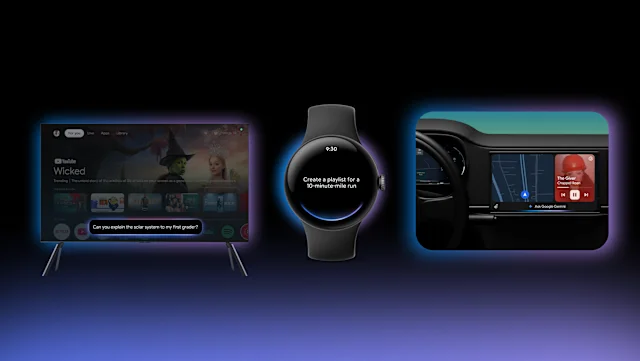
Google Gemini AI Expansion: Revolutionizing Android with On-Device Power and Cross-Device Integration
Google is poised to revolutionize the Android experience with significant expansions to its Gemini AI capabilities. Moving beyond simple text-based interactions, Gemini is set to empower third-party apps with on-device processing and extend its reach across a multitude of Android devices, including smartwatches, cars, and TVs. This pivotal shift promises enhanced user privacy, improved performance, and a more intuitive, seamless AI-driven experience.
Gemini Nano, the optimized on-device AI model, will soon be accessible to developers through the new ML Kit GenAI APIs. This will allow them to seamlessly integrate AI features like text summarization, proofreading, rewriting, and, notably, image description generation into their apps. This is a leap beyond the experimental AI Edge SDK, offering a more robust and versatile tool for developers.

The new APIs, likely to be formally unveiled at I/O 2025, will not only be in beta, suggesting production-ready use, but will also support image input and be available on a wider array of Android devices, surpassing the limitations of the Pixel 9 series. This broadened accessibility signifies a commitment to democratizing AI capabilities across the Android ecosystem.
As Mishaal Rahman from Android Authority notes, ML Kit’s GenAI APIs simplify the process for developers to implement Gemini Nano's features privately and with high performance. Imagine apps capable of summarizing articles into bullet points, polishing grammar in short content, rewriting messages in various tones or styles, and even generating image descriptions, all powered by on-device AI.

Beyond smartphones, Gemini is expanding its reach to Wear OS smartwatches, Android Auto, and Google TV. On your wrist, it will be a convenient assistant for setting reminders or getting answers on the go. In the car, it will understand natural conversations, helping you find charging stations or summarizing messages. On TV, it will provide personalized recommendations for entertainment and learning.
Google is also collaborating with Samsung on Android XR, creating new ways to interact with headsets and glasses. Imagine planning a vacation surrounded by videos, maps, and local tips, all generated in minutes. This cross-device integration promises a truly personalized and powerful AI experience.
This expansion of Gemini AI addresses a critical problem with current voice assistants: the need for precise and often unnatural commands. By allowing users to "just talk normally," Google aims to create a more intuitive and seamless interaction, going beyond the capabilities of current voice assistants like Siri. However, as Bridget Carey points out, the disclaimer about potential inaccuracies raises questions about the reliability of this AI assistant.
The widespread adoption of Gemini across the Android ecosystem holds the potential to transform how we interact with our devices, offering a truly personalized, proactive, and powerful AI experience.
What are your thoughts on the expansion of Gemini AI? How do you see it impacting your daily life? Share your opinions in the comments below!